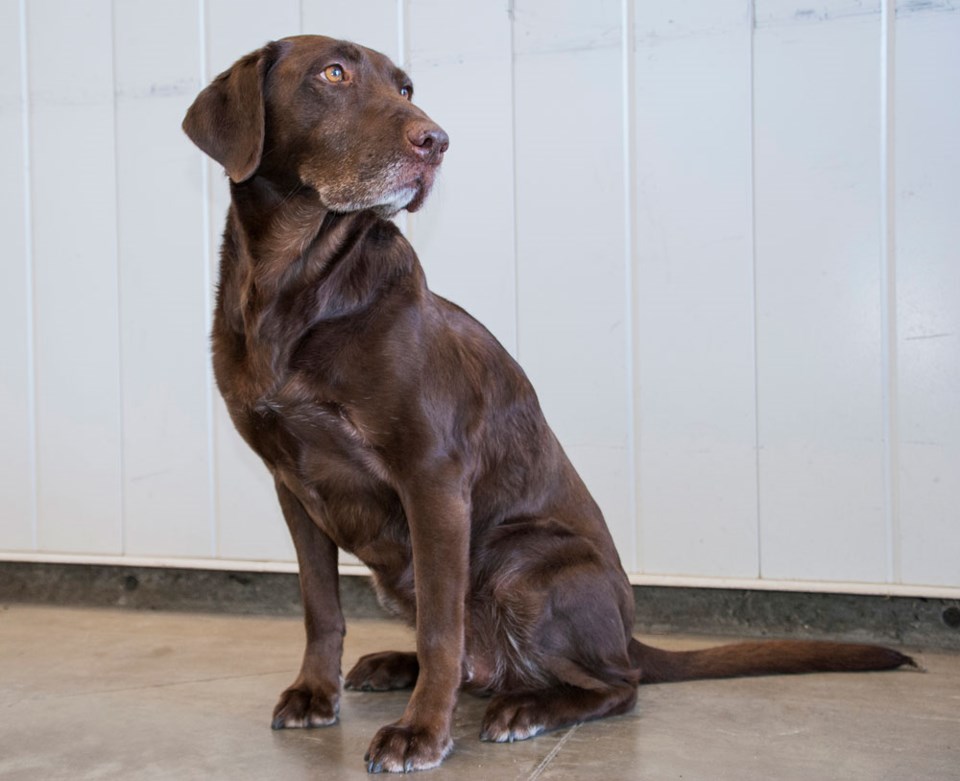A popular figure at the Canada Border Services Agency’s (CBSA) North Portal border crossing has retired, following an award-winning career in which she established herself as one of the best at her job in the country.
The CBSA announced last week that detector dog Holly had retired from the agency on Aug. 12 after more than nine years of service. Holly, a brown Labrador, assisted in 216 seizure actions during her nine-year career, or about 24 per year, as she sniffed out guns and drugs across Saskatchewan.
Her abilities as a detector dog were also on full display at the annual Canadian Police Canine Association Trials, as she took top spot in 2011, 2012 and 2013, and was the runner-up in 2014 and 2015.
Immediately after retiring, she was adopted by her handler, CBSA officer Toban Tisdale.
Luke Reimer, a communications officer for the CBSA in the Prairie region, noted Holly was used to detect guns and drugs at the Canada-U.S. land crossings, and at international airports in Saskatoon and Regina.
“She sniffed travellers, cars, and commercial shipments to locate contraband,” Reimer said.
Holly would also go out to assist other law enforcement agencies if there was a connection to one of the CBSA’s business lines.
The detection of contraband is a big part of a detector dog’s duties, Reimer said, and it’s why the dogs play such an important role in the CBSA’s operations.
“They deter smugglers while increasing the public's awareness of the CBSA's innovative enforcement approaches; help BSOs (border services officers) conduct examinations; reduce labour-intensive searches; and improve service to the travelling public by reducing the time needed to screen or examine passengers, luggage, and commercial shipments in a less intrusive manner,” said Reimer.
“Dogs have one of the most acute senses of smell. This not only allows them to detect the presence of prohibited or regulated substances, but more importantly, to pinpoint their location.”
Holly’s retirement currently leaves the CBSA without a detector dog. The CBSA will find a new dog to succeed Holly, but they have not established a timeline for choosing Holly’s replacemtn.
“In the meantime, the CBSA has a suite of detection tools including X-rays, detector dogs (from other agencies), and ion mobility spectrometers which can be used to keep Canadians safe at the border,” Reimer wrote.



